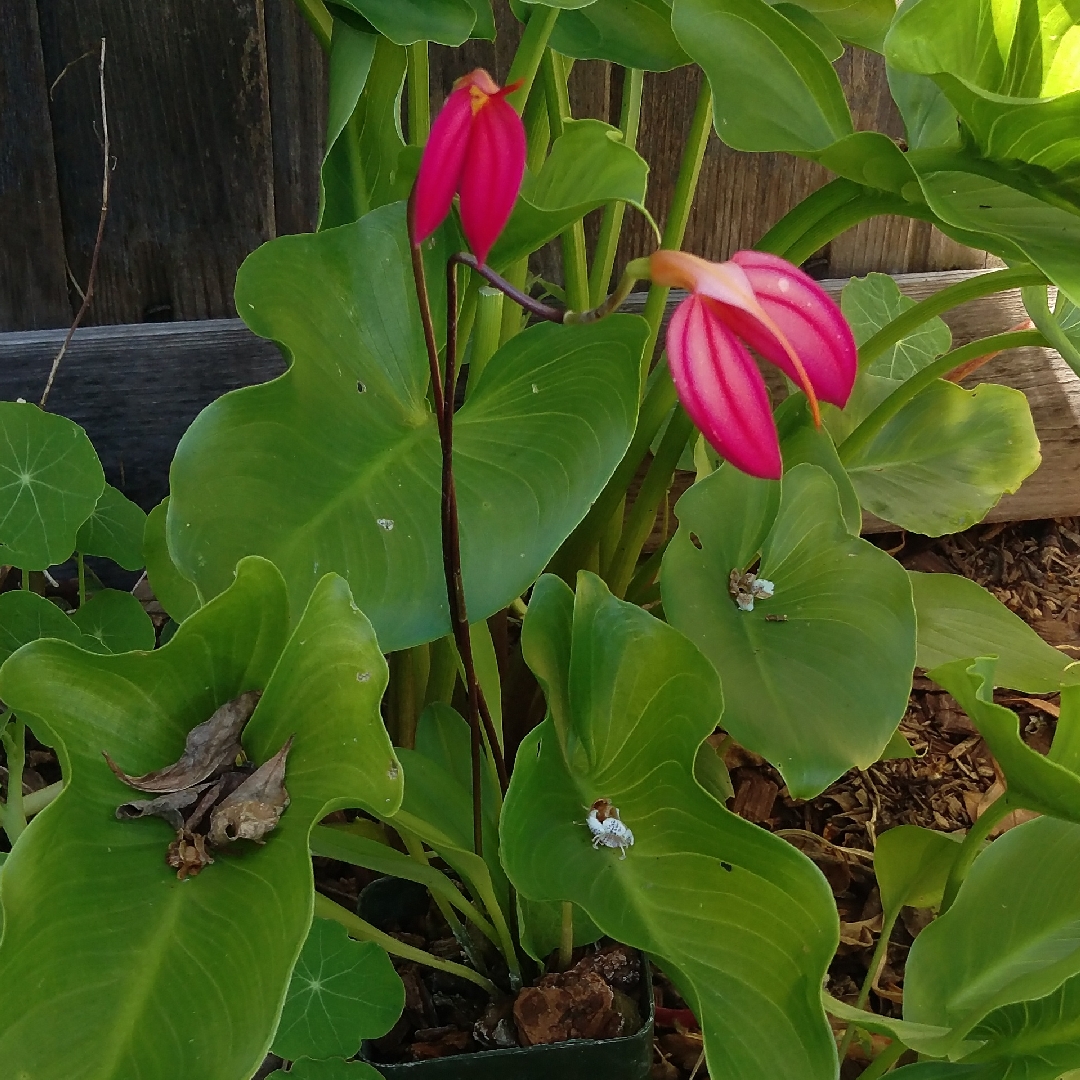
Masdevallia ignea 'Crestwood'
Masdevallia 'Crestwood'
Masdevallia grows from a creeping rhizome that gives rise to stems that lack pseudobulbs. The stem bears a single, fleshy leaf. The flowers are triangular and occur singly or in racemose inflorescences. When planting, the rhizome should remain at the surface of the medium in order to prevent rot. They cannot tolerate dryness, low humidity, or excessive temperatures and the plants are very easy to kill.
Contributed by @disneyfacts
-
Partial shade
-
Very little water
-
Not Frost hardy
-
Moist and free draining
Common name
Masdevallia 'Crestwood'
Latin name
Masdevallia ignea 'Crestwood'
type
Epiphyte
family
Orchidaceae
ph
5.0 - 8.0 Acid - Neutral
Plant & bloom calendar
-
Best time to plant
-
When the plant will bloom
full grown dimensions
 0.35 M
0.45 M
0.35 M
0.45 M
Masdevallia ignea 'Crestwood'
Masdevallia grows from a creeping rhizome that gives rise to stems that lack pseudobulbs. The stem bears a single, fleshy leaf. The flowers are triangular and occur singly or in racemose inflorescences. When planting, the rhizome should remain at the surface of the medium in order to prevent rot. They cannot tolerate dryness, low humidity, or excessive temperatures and the plants are very easy to kill.
Planting young plants
From Early Autumn TO Late Autumn
Pot them up in orchid compost. Water them sparingly at first, but mist them daily. Always use a proprietary orchid compost. Ensure good light levels in winter, as these are essential to encourage flowering. An east or west-facing window would be ideal. Move to a shadier spot in summer and protect from direct sunshine.
Flowering
From Early Spring TO Late Winter
Many orchids do not have a flowering season and flowers may be produced at any time if the right conditions are being met. Flowers can last for several months.








